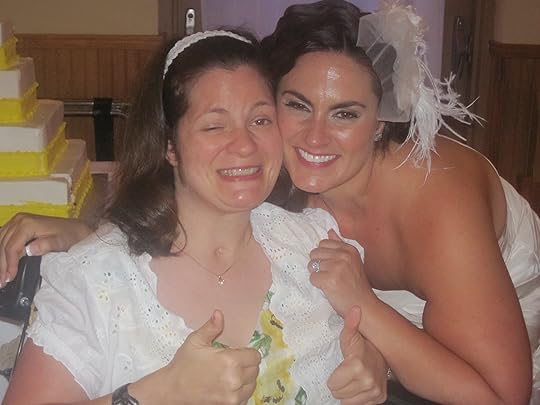Marilyn Martone's Blog, page 15
September 10, 2011
Rehabilitation System
Here we go again. Now it's my husband who is being told he has to leave acute care rehab and move into sub-acute. At least this time they're honest and calling it an insurance issue. Is anyone reflecting on how this whole system developed? Insurance companies cut rehab stays in acute care facilities and this whole new area called sub-acute rehab began to blossom. But notice most of these so-called sub-acute facilities are part of nursing homes (although now they're called skilled nursing facilities). Why do you think that is? It's a win-win situation for nursing homes. They are being reimbursed more for sub-acute care than they are for only nursing services. In addition, when insurance runs out for sub-acute rehab they can move the patients right into their nursing homes, which are usually another floor of the same building. Many patients are unaware that they are being processed through a feeder system. And once you're part of a system it's hard to get out.








September 2, 2011
Michelle's Dad
Last Friday, Michelle's father fell and injured his spinal cord. He has central cord syndrome. He weathered the hurricane in ICU. Now he is in rehab working very hard. Let's hope for a good recovery. This is a family that knows a great deal about rehabilitation.








August 23, 2011
Biggest Loser is Biggest Winner
Michelle just got back from her cousin Kelly's wedding. Kelly was on the first episode of the Biggest Loser.








August 9, 2011
Thinking Globally
The WHO report on disability reports on a project in India called "Mobility India." The goal is to construct toilets so that persons with disabilities do not have to crawl or be carried long distances for their toileting needs.








July 26, 2011
Book on Disability
I'm reading The Paradox of Disability right now. It's a collection of essays edited by Hans Reinders, a leading theologian who works in disability. The book focuses on the L'Arche communities, communities for persons with cognitive disabilities started by Jean Vanier. In the introduction Reinders states, "To look at other people's brokenness and limitation without seeing our own is a gesture of power; to acknowledge our own brokenness and limitation in the face of theirs is a gesture of community."








July 15, 2011
Women with Disabilities
I worked at the UN on Wednesday and listened to the report from Zambia on how they are implementing women's rights. Women with disabilities are one of the most vulnerable groups. In certain parts of Zambia it is believed that if a man with HIV has sex with a woman with disabilities he will be cured.








July 5, 2011
Exhibit on the Brain
We took Michelle to the Museum of Natural History this weekend to see the exhibit on the brain. Two points were prevalent. To develop creativity jolt your brain out of old habits by trying something new. To train your brain to do something effortlessly do the action over and over again. These points seem obvious but when working with brain injured individuals they need to be emphasized. We can retrain our brains.








June 29, 2011
Cultural Differences on Elders
Yesterday's New York Times contained these two stories: 1. In the US new drugs have been developed that fight prostrate cancer. They extend life from two to five months but cost thousands of dollars and will put a heavy burden on Medicare; 2. In Japan older individuals are volunteering to do the clean-up work at the nuclear reactors to protect the young. What do you think?








June 22, 2011
WHO World Report on Disability
The World Health Organization has just issued its first global report on disability. Go to its web site to download the report. One interesting point this report discloses is that 15% of the world's population have significant disabilities.








June 9, 2011
Members of the Armed Forces with Brain Injuries
Check out today's editorial page of the NY Times.Why do our members of the armed forces who have mental illnesses and brain injuries have to sue to get housing? Evidently, in the Los Angeles area they are living on the streets.











